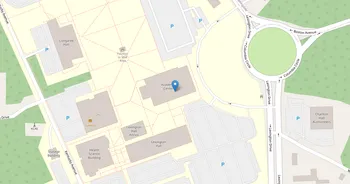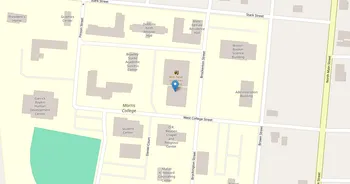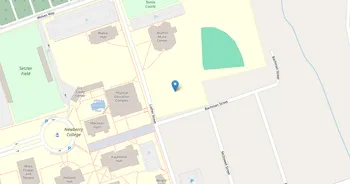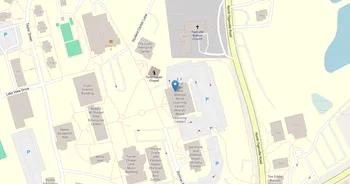Medical University of South Carolina (MUSC) : Overview, Courses, Scholarships & Rankings
About Medical University of South Carolina
In Charleston's historic peninsula, classrooms meet clinics. The Medical University of South Carolina is known for team-based health sciences education that blends rigorous coursework with hands-on patient experience. Students move between simulation suites, busy hospital corridors and quiet library floors, with advising, tutoring, career guidance and wellness services close at hand.
Campus life revolves around service, research and coastal breathing room. You'll find student groups that support community clinics, interprofessional simulations, intramurals by the water and quick escapes to beaches, plus a lively arts and food scene downtown. The culture is collaborative and patient-centered, more scrubs than suits. Career preparation grows from rotations, research and community projects that connect students to regional health systems and public health partners. White coat and hooding milestones add tradition, and Charleston's diverse neighborhoods and Lowcountry communities can sharpen a future clinician's bedside voice.
Key Institutional Details
Contact & Profile
Academic & Institutional
Academic Programs & Fields of Study
Medical University of South Carolina (MUSC) offers 32 degree programs across 2 major academic fields, graduating approximately 1,095 students annually. The most popular fields by graduate volume are Health (24 programs, 1,041 graduates) and Biological Sciences (8 programs, 54 graduates). Explore program details, award levels, and graduate demographics below.
Health (24 programs, 1,041 graduates)
Healthcare Professions, Medical Sciences and Clinical Practice
| Program Name | Graduates | Gender Distribution | Award Levels | CIP Code |
|---|---|---|---|---|
| Registered Nursing | 155 |
|
Bachelor's
|
51.3801 |
| Medicine | 147 |
|
Doctorate (P)
|
51.1201 |
| Physician Assistant | 96 |
|
Master's
|
51.0912 |
| Dentistry | 76 |
|
Doctorate (P)
|
51.0401 |
| Adult Health Nursing | 74 |
|
Master's
|
51.3803 |
| Health Administration and Management | 69 |
|
Master's
Doctorate (R)
|
51.0701 |
| Pharmacy | 64 |
|
Doctorate (P)
|
51.2001 |
| Physical Therapy | 63 |
|
Doctorate (R)
|
51.2308 |
| Occupational Therapy | 58 |
|
Doctorate (R)
|
51.2306 |
| Nursing Practice | 57 |
|
Doctorate (R)
|
51.3818 |
| Speech-Language Pathology | 41 |
|
Master's
|
51.0203 |
| Cardiovascular Technology | 31 |
|
Master's
|
51.0901 |
| Nurse Anesthesia | 31 |
|
Doctorate (R)
|
51.3804 |
| Medical Science | 19 |
|
Master's
|
51.1401 |
| Advanced General Dentistry | 11 |
|
Master's
|
51.0502 |
| Medical Informatics | 10 |
|
Master's
Doctorate (R)
|
51.2706 |
| Pre-Medicine | 7 |
|
Master's
|
51.1102 |
| Public Health Education and Promotion | 7 |
|
Master's
|
51.2207 |
| Rehabilitation and Therapeutic Professions | 6 |
|
Doctorate (R)
|
51.2399 |
| Health Professions and Related Sciences | 6 |
|
Postbac Cert.
|
51.9999 |
| Allied Health Diagnostic and Treatment Professions | 4 |
|
Master's
|
51.0999 |
| Pharmaceutics and Drug Design | 3 |
|
Doctorate (R)
|
51.2003 |
| Nursing Science | 3 |
|
Doctorate (R)
|
51.3808 |
| Psychiatric and Mental Health Nursing | 3 |
|
Post-Master's
|
51.3810 |
Biological Sciences (8 programs, 54 graduates)
Life Sciences, Biotechnology and Biomedical Research
| Program Name | Graduates | Gender Distribution | Award Levels | CIP Code |
|---|---|---|---|---|
| Biomedical Sciences | 19 |
|
Master's
|
26.0102 |
| Epidemiology | 10 |
|
Master's
|
26.1309 |
| Biochemistry | 7 |
|
Doctorate (R)
|
26.0202 |
| Cell Biology and Anatomy | 6 |
|
Doctorate (R)
|
26.0499 |
| Neuroscience | 5 |
|
Doctorate (R)
|
26.1501 |
| Pharmacology | 3 |
|
Doctorate (R)
|
26.1001 |
| Biostatistics | 3 |
|
Master's
Doctorate (R)
|
26.1102 |
| Medical Microbiology and Bacteriology | 1 |
|
Doctorate (R)
|
26.0503 |
Tuition, Fees & Estimated Costs
Overview of tuition rates, housing, and other annual education expenses for undergraduate and graduate students
Financial Aid & Student Support
Summary of scholarships, grants, student loans, and financial aid statistics for undergraduate students
Student Success Metrics
Graduation rates and post-graduation earnings to help assess student outcomes and long-term value of education.
Loan Burden & Repayment Outcomes
Breakdown of loan repayment rates and student debt levels by income and dependency status.
Frequently Asked Questions
Find answers to the most common questions about Medical University of South Carolina (MUSC)
How much does it cost to attend Medical University of South Carolina (MUSC)?
The annual tuition at Medical University of South Carolina (MUSC) is $16,972 for in-state students and $30,380 for out-of-state students. When including room and board, books, and other expenses, the total estimated cost is approximately $16,972 for in-state students and $30,380 for out-of-state students.
Data based on IPEDS program completions for 2022-2023 academic year. Tuition and cost estimates are approximate and may not include all fees, personal expenses, or transportation costs.
What academic programs and degree levels does Medical University of South Carolina offer?
Medical University of South Carolina (MUSC) offers 32 academic programs across 2 major fields of study, with available degree levels: Bachelor's, Postbac Cert., Master's, Post-Master's, Doctorate (Research), Doctorate (Professional).
Most popular program areas include:
- Healthcare Professions, Medical Sciences and Clinical Practice (24 programs)
- Life Sciences, Biotechnology and Biomedical Research (8 programs)
Data based on IPEDS program completions for 2023-2024 academic year. Numbers reflect programs where students graduated, not all offered programs.
What is the average salary for Medical University of South Carolina graduates?
Medical University of South Carolina (MUSC) graduates earn a median salary of $77,677 after 6 years and $88,420 after 10 years.
The salary range 10 years after graduation spans from $65,145 (25th percentile) to $119,437 (75th percentile), with top earners reaching $171,200 (90th percentile).
Data based on IPEDS for 2022-2023 academic year. Salary data reflects graduates who received federal financial aid (approximately 60% of all graduates). Actual earnings may vary significantly based on program, location, and individual circumstances.
Related Universities




Found something useful? Help others discover it too! Share with friends, on social media, or save for later - every share helps someone find the information they need.